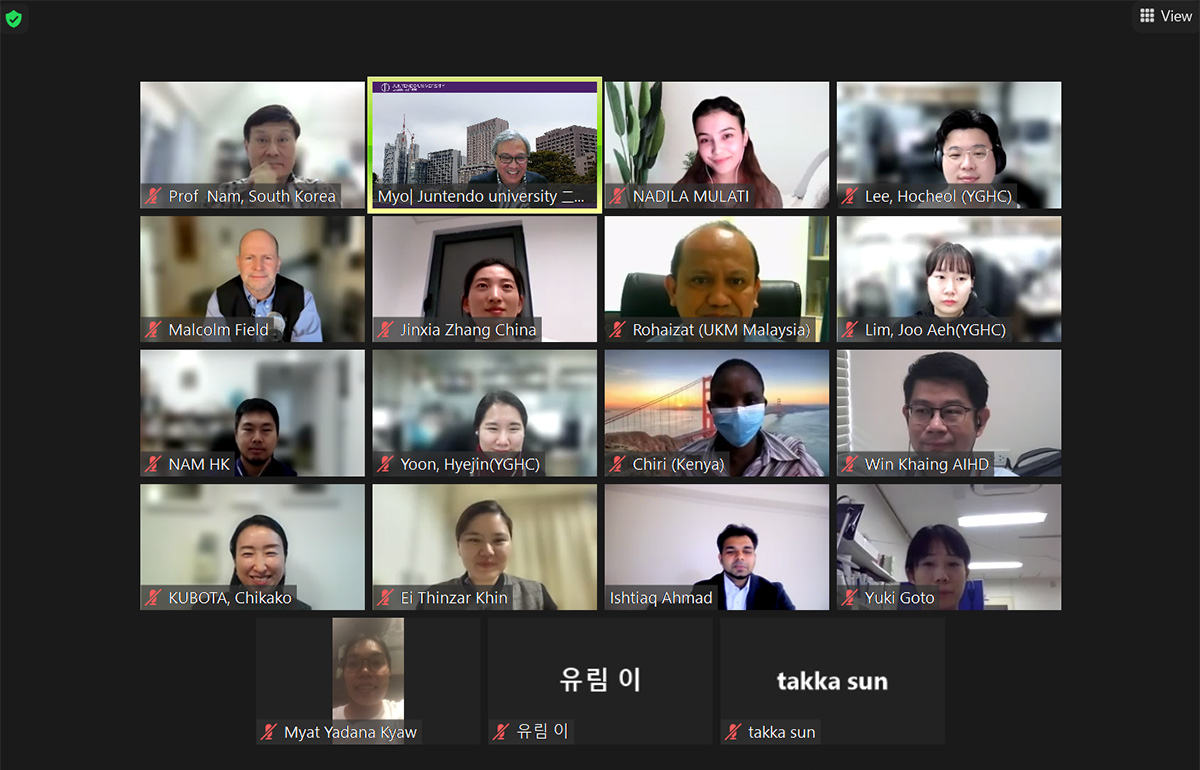8th DIHAC policy review meeting report
Digital Technology for Health Promotion
8th DIHAC policy review meeting analysis report
By Myat Yadana Kyaw & Myo Nyein Aung

Digitally Inclusive Healthy Ageing Community (DIHAC) is a cross-cultural study to explain contextual influences of digital inclusion and its consequences on healthy ageing in Japan, Republic of Korea, Singapore and Thailand. It was a virtual meeting conducted by Zoom on 15 December,2021 and participants included experts and researchers from China, India, Japan, Kenya, Korea, Malaysia, and Thailand to conduct a comprehensive review of ageing and digital policies in Asia and Southeast Asia. The meeting was started by welcoming and introducing the participants by the study principal investigator, Dr. Myo Nyein Aung, associate professor, from Juntendo University. The meeting was organised in two sessions. In the first session, Mulati Nadila, a PhD candidate from Juntendo University presented about the use of digital technology in health promotion projects for healthy ageing and prevalence of digital skill training for seniors in Tokyo and Shizuoka. Comparing the digital gap among community-based health promotion projects, there was a significant difference between Tokyo and Shizuoka in integrating digital technology for older people although there were digital literacy classes for seniors in both prefectures.
Themes addressed in the meeting:
- Integration of digital technology in health promotion projects for elderly people in Japan
- Digital technology as a new normal method in health promotion and health education areas
The discussion points were the channels and charges of internet usage for senior citizens in Japan and education level of elderly people was associated with use of digital technology. The second session was conducted by Professor Malcom Field, one of the investigators of DIHAC study, from Kyorin University and Waseda University. Prof. Field presented about the health communication journey and inclusion of digital technology in the next new normal nursing and health education and communication with the public. He shared the experience of using digital technology in health education projects in Uganda and Japan. In the Uganda project, the primary school students were introduced to hygienic habits, science and ICT skills by making creative designs through coding. In Japan, digitally empowered materials were used in awareness raising for cancer projects. The participants discussed the use of digital technology in health education and its challenges in a broad question-and-answer way. Lastly, the next meeting was proposed to take place two months later for further discussion of digital and ageing policies.
About authors
Myat Yadana Kyaw is PhD student at Department of Global Health Research, Graduate School of Medicine Juntendo University, Tokyo, Japan.
Myo Nyein Aung is Associate Professor at Department of Global Health Research, Graduate School of Medicine Juntendo University, Tokyo, Japan. He is also affiliated to Advanced Research Institute for Health Sciences and Faculty of International Liberal Arts, Juntendo University, Tokyo, Japan.
